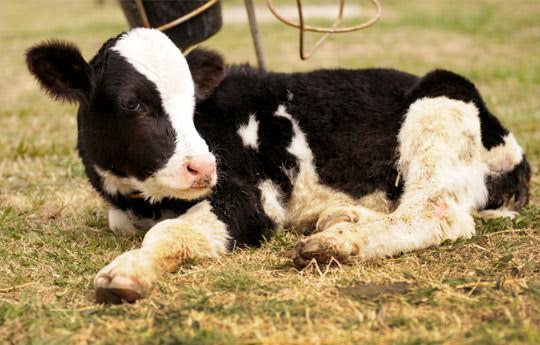Technology
New advances in bovine neosporosis
CONICET professionals and the INTA, together with the private sector study the development of a vaccine against this disease that causes reproductive losses in cattle.
Neosporosis is a parasitic disease produced by the protozoan Neospora caninum, whose definite host is the dog. The parasite eliminates eggs in the dog’s dregs contaminating the water sources and bovines’ food. This infection is characterized by the production of spontaneous abortions, neonatal mortality, births of cattle with neurological disorders and low weight. It has a negative effect on other reproductive indexes such as fertility rate and percentage of retained placenta linked to the abortion.
Scientists at the CONICET, together with the National Institute of Agricultural Technology (INTA) and a private company study the development of a vaccine to fight bovine neosporosis.
Alejandra Capozzo, CONICET independent researcher at the Centro de Investigación en Ciencias Veterinarias y Agronómicas [Research Center for Veterinary and Agricultural Sciences] of the INTA, who is part of this project, explains: “One of the stages of this initiative was the development of an adjuvant, a substance that admininistered with an antigen, it increases the immune response. The adjuvants available in the market are immunogenic or cause a lot of damage, so we developed one from soy lecithin, which is really economical, can be developed in the country and is not detrimental to the animal. Based on this job, we began to test different vaccine formulations, such as that against neosporosis.”
This new adjuvant represents a big leap in animal health as nowadays vaccines used to treat animal diseases are not efficient and their adverse effects are really significant.
“Current adjuvant used in veterinary vaccines are based on aluminium hydroxide or oil. The first ones did not work well on big animals, whereas the second ones produced granulomas on the injection site. Instead of causing real damage, we put in the adjuvant signs of damage, molecules that generate responses in the immune system without side effects and without real harm”, the researcher explains.
Neosporosis affects the milk and meat industries in the Pampas region and causes great economic reductions. “Estimate losses are approximately US$ 50 millions a year. It is necessary to consider that 16,5 per cent of dairy cows may result from an N. caninum, whereas meat cows would be responsible for the 6,7 of the abortions”, explains Dadín Prando Moore, CONICET independent researcher at the INTA Balcarce, where the new vaccine’s trials are being conducted.
The vaccine was tested in mice, pregnant and non-pregnant cows and the results were encouraging. It was proved that it stimulates immune response and is safe because it does not cause adverse effects in the mother or changes in fetal growth parameters. This development will allow producers to have access to a tool of very low cost, national production, plant origin so as to reduce losses caused by the disease.
“This adjuvant is totally biodegradable, harmless, and it protects the antigen and promotes the induction of immunity so it can be used without risks during pregnancy. In the near future, this experimental formulation will have to be tested through potency tests so as to prove its efficiency in the field”, Capozzo states.
For his part, Moore observes that beyond the benefits of the vaccine, it is essential to have good herd management and take measures for control and prevention aimed at breaking the cycle of parasitic life such as feeding the dogs with cooked meat and limiting their access to the sources of water and food for the cattle.
“This project has been carried out over the past two years thanks to the collaborative work between the public and the private sectors. It promotes the possibility of boosting production and reaching the market even at the beginning of the development. This is really enriching for both parts. It is a combination of expertise as we provide our studies on immunology, INTA Balcarce contributes with their knowledge on the disease and the company with business acumen”, the scientist concludes.
The agreement for the production vaccine against bovine neosporosis was signed by the CONICET, the INTA and Tecnovax, a biopharmaceutical enterprise.
For his part, Matías Grosman, director of the company, comments that the vaccine is new and its joint development allowed them to transform a vacant area because nowadays there are not advances that help to control this disease that affects more and more cattle at the national level.
“In recent years, we have noticed the interest CONICET has to combine efforts and instruments of the public and private sectors. We are proud of the scientific system. There are very good ideas but it is fundamental to have enterprises that adopt that technology so as not to let them die in a paper or in a laboratory bench. We fully support this initiative that promotes applied science to continue value chain”, he adds.
- By Cecilia Leone
